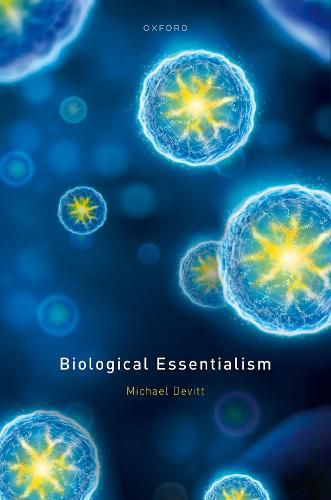Readings Newsletter
Become a Readings Member to make your shopping experience even easier.
Sign in or sign up for free!
You’re not far away from qualifying for FREE standard shipping within Australia
You’ve qualified for FREE standard shipping within Australia
The cart is loading…






Biological Essentialism addresses three main issues. The first concerns the essences (natures, identities) of biological taxa, particularly species. Kripke and other metaphysicians hold that these essences are (at least partly) intrinsic, underlying, probably largely genetic properties. This view, based largely on intuitions, is dismissed by the consensus in the philosophy of biology as being incompatible with Darwinism and reflecting ignorance of biology. Biological Essentalism argues that the demands of biological explanation show that the metaphysicians are right. The positive view of the consensus is that the essences are wholly relational: taxa must have certain histories. Biological Essentialism argues that there is indeed an historical component to the essence, but this component presupposes an intrinsic component. Its second issue concerns the essences of biological individuals. Metaphysicians have had much to say about this, again on the basis of intuitions. Many hold that an individual is essentially a member of its species. This has recently been unequivocally rejected by philosophers of biology. Biological Essentialism appeals to biological explanation again to argue for essential membership; furthermore, to argue for the Kripkean view that an organism’s essence is partly intrinsic and partly relational (a matter of origin). Finally, the book addresses the lively contemporary issue of whether race is biologically real . From the perspective developed earlier, the book argues that there are indeed racial kinds, in some sense, that are in the realm of the biological . These kinds also have partly historical and partly intrinsic underlying essences.
$9.00 standard shipping within Australia
FREE standard shipping within Australia for orders over $100.00
Express & International shipping calculated at checkout
Biological Essentialism addresses three main issues. The first concerns the essences (natures, identities) of biological taxa, particularly species. Kripke and other metaphysicians hold that these essences are (at least partly) intrinsic, underlying, probably largely genetic properties. This view, based largely on intuitions, is dismissed by the consensus in the philosophy of biology as being incompatible with Darwinism and reflecting ignorance of biology. Biological Essentalism argues that the demands of biological explanation show that the metaphysicians are right. The positive view of the consensus is that the essences are wholly relational: taxa must have certain histories. Biological Essentialism argues that there is indeed an historical component to the essence, but this component presupposes an intrinsic component. Its second issue concerns the essences of biological individuals. Metaphysicians have had much to say about this, again on the basis of intuitions. Many hold that an individual is essentially a member of its species. This has recently been unequivocally rejected by philosophers of biology. Biological Essentialism appeals to biological explanation again to argue for essential membership; furthermore, to argue for the Kripkean view that an organism’s essence is partly intrinsic and partly relational (a matter of origin). Finally, the book addresses the lively contemporary issue of whether race is biologically real . From the perspective developed earlier, the book argues that there are indeed racial kinds, in some sense, that are in the realm of the biological . These kinds also have partly historical and partly intrinsic underlying essences.